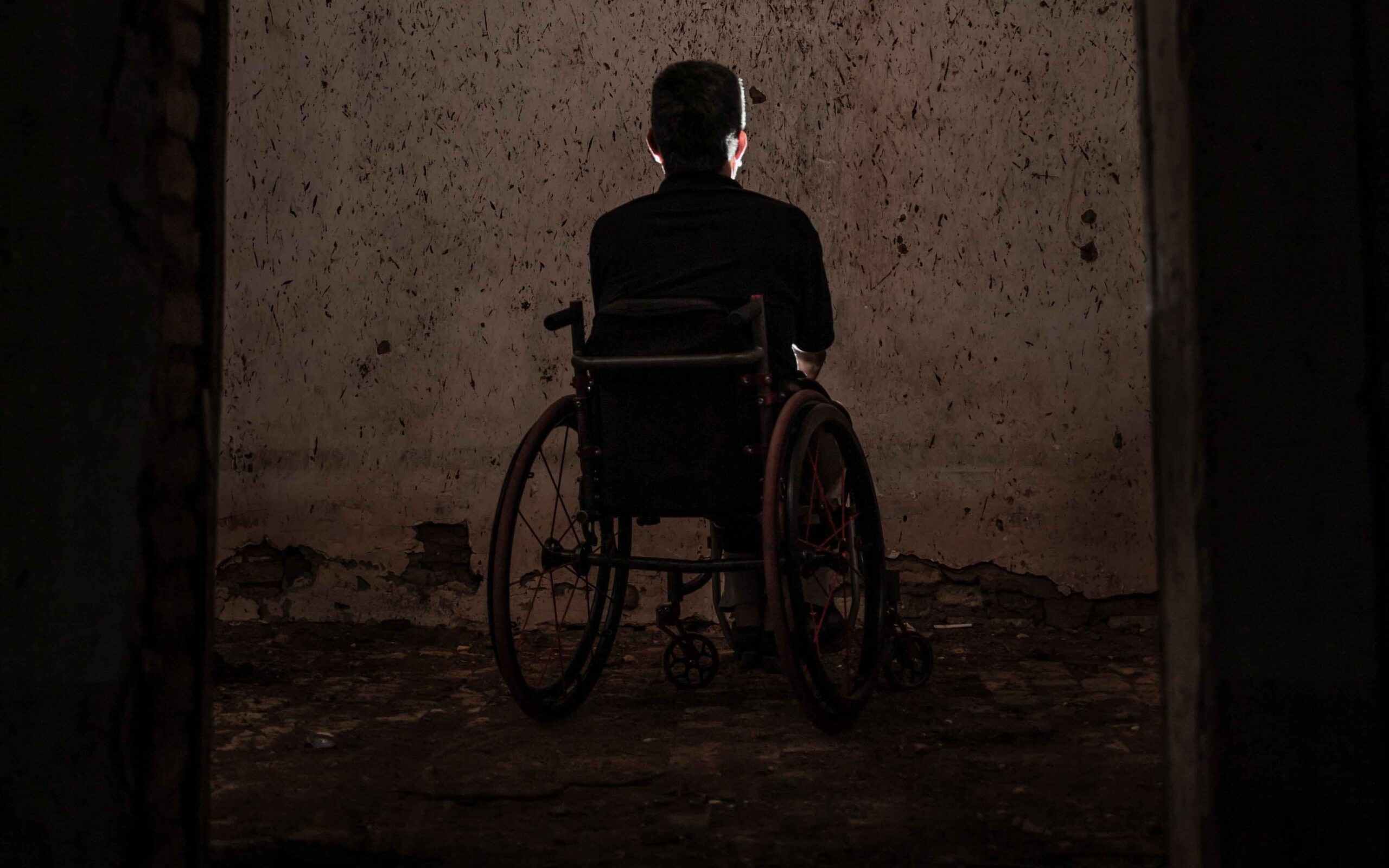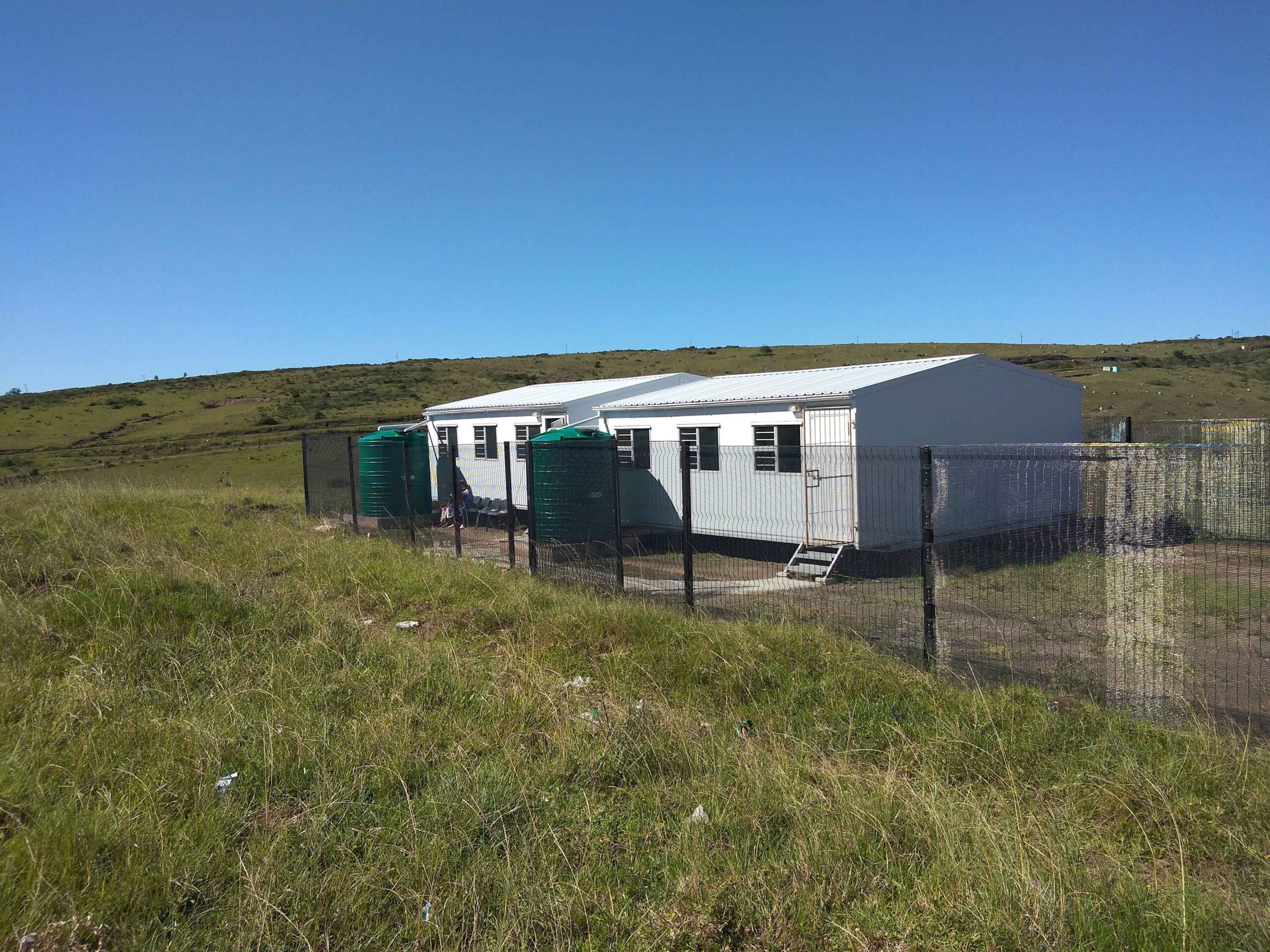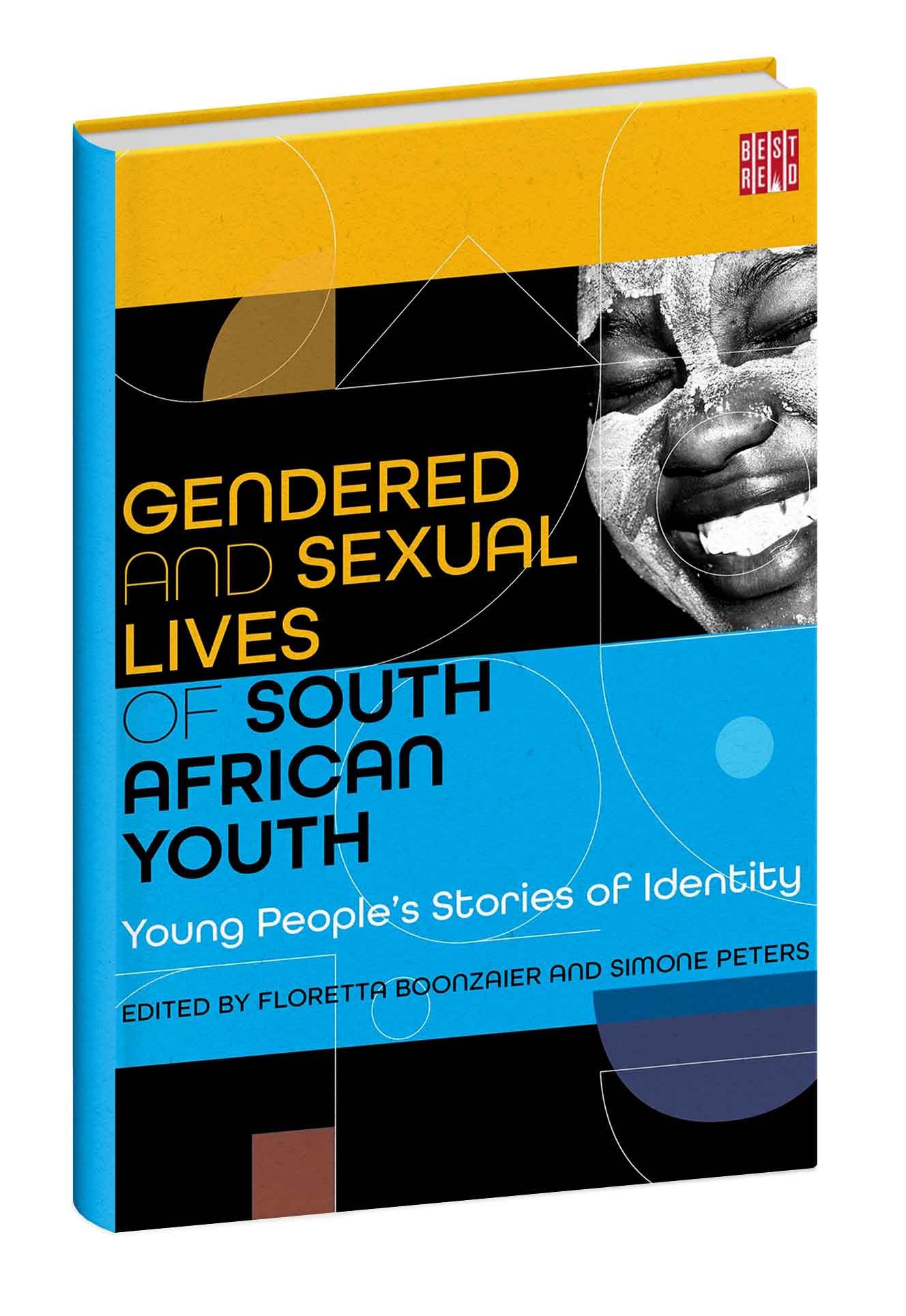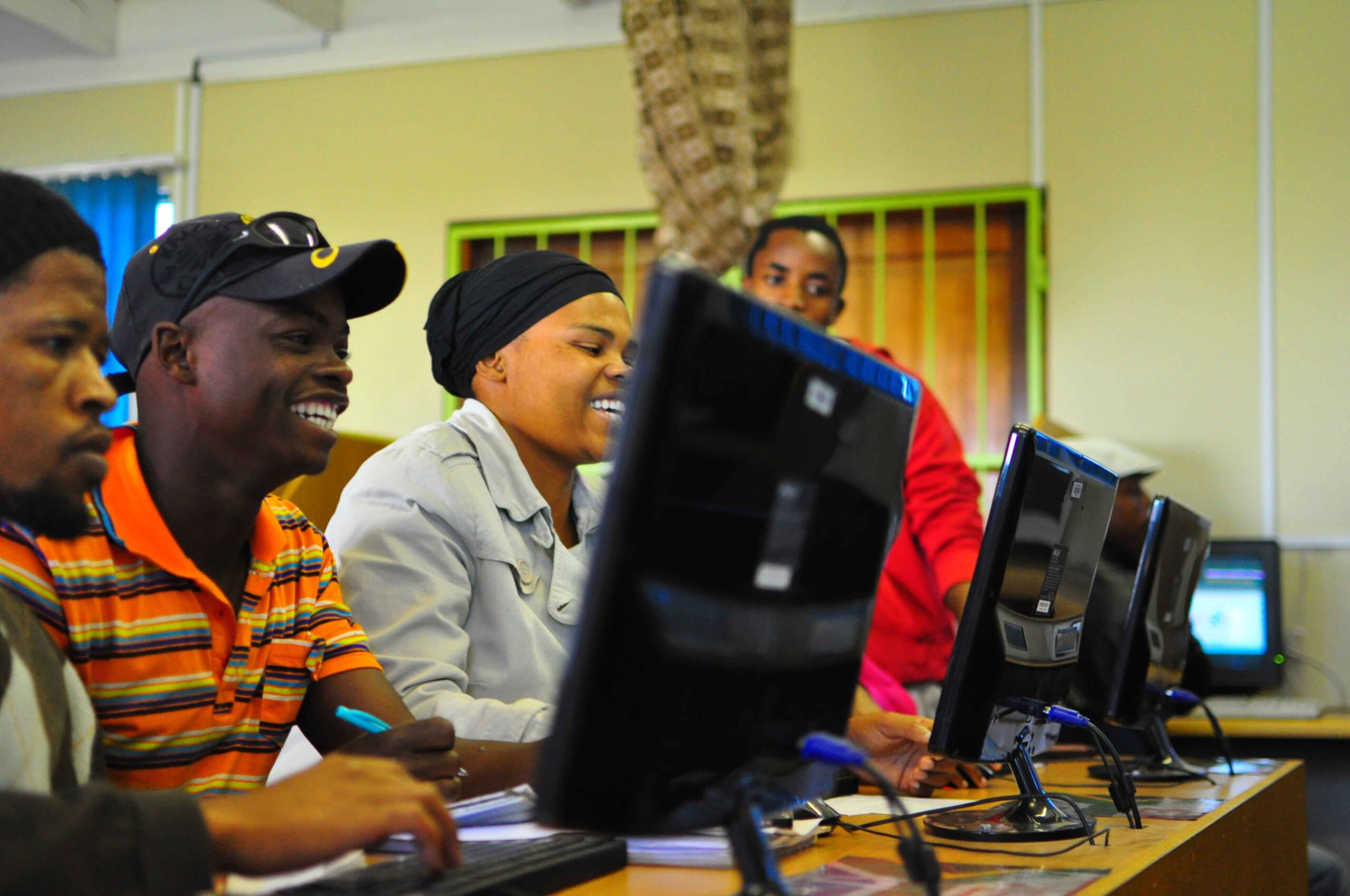In South Africa people with disabilities continue to face numerous challenges when accessing healthcare. The effect of the pandemic on these was described by scholars and activists in the early months of the COVID-19 outbreak. Based on fieldwork for the HSRC’s Women Rise Project, the story of Mandy (not her real name) is shared, to shed light on the struggles experienced by people with physical disabilities, especially those living in rural areas, when attempting to access healthcare. For people with disabilities in rural areas, equal access to healthcare services does not equate to equity. By Anelitha Tukela and Tim GB Hart
Mandy is a 60-year-old woman living in a rural area of Kwelera in Buffalo City Municipality in the Eastern Cape. Her right leg was amputated in 2021 due to diabetes, which was diagnosed some years earlier, before the COVID-19 pandemic. She takes medication but also needs to inject herself to control her diabetes.
In April 2023 Mandy shared her story with fieldworkers from the HSRC’s Women Rise Project. This project looks at key issues related to the precarity of women in rural areas of South Africa during the COVID-19 pandemic, as a starting point for post-COVID-19 rebuilding. Using the ‘people’s science’ action approach in two phases, the research team has been documenting and exploring women’s lives before, during, and after the acute phases of the pandemic, to identify trends and triggers that elevate or depreciate their livelihoods and health status. In the second phase the project will use this analysis to explore strategies to enhance the prevention of adverse outcomes in the health and livelihood spheres.
The loss of her leg forced Mandy to stop working and stay at home, relying on a disability grant. “I have money to maintain my household, but the only frustration is that I’m using a wheelchair and can’t move around like I used to,” she said.

Photo: Alexandre Saraiva Carniato, Pexels
Mandy attempted to apply for a prosthetic limb, which would give her greater mobility and independence in and outside her home. However, she found the process of getting the leg at a public hospital to be an enormous challenge, and has struggled to access the medical facilities and services needed to be eligible for it. To qualify, she has to attend weekly physiotherapy sessions at the hospital in East London, which is 40km from her home.
Mandy attended physiotherapy after her operation, when they taught her how to use her wheelchair and walking frame. However, she couldn’t keep up with the physiotherapy because she lives in a rural area, and getting to the hospital every week was extremely challenging and expensive. If she used the taxi service, she had to catch two taxis before reaching the hospital; both charged her for transporting her wheelchair and walking frame, and no one helped her to get from one taxi to the other. Mandy therefore needed to hire a car, which could accommodate her wheelchair and walker. “I don’t have money to hire a car every week, and without me going to physiotherapy every week, I can’t qualify for a prosthetic leg,” she said.
She has become frustrated with the process and is now thinking of finding ways of buying the prosthesis herself. However, a prosthesis is expensive in the private health sector, and she lacks funds. Also, she would still require physiotherapy and assistance if she did acquire one. Mandy currently only receives a disability grant, but now that she is 60 years old this will be converted to an elderly grant (old-age pension) of equivalent value. Although she is a disabled pensioner, she will only receive the standard state old-age pension that all qualifying poor people of 60 years and older receive.
Every month Mandy also struggles to collect her diabetes medicines at the clinic, relying on others to collect them for her. A neighbour who was compensated through an Extended Public Works Programme (EPWP) in her village used to collect Mandy’s medicines but stopped when the EPWP contract ended. Sometimes Mandy’s husband takes a day off work to collect his wife’s medicines, but if he can’t, and if she can’t find someone to help, she goes days without taking her medication. To maintain her routine during these times Mandy drinks water whenever it’s time to take her medicine, but with unstable diabetes, going for days without medication is a health risk.
Missing check-ups
When Mandy doesn’t collect her medicine, she also misses her medical check-ups. “Nurses never write on the clinic card or tell the person collecting the medicines [when] my [next check-up date [is],” she said. Anelitha Tukela, the HSRC fieldworker who has been working in Kwelera, has linked Mandy with a health assistance mentor from a non-profit organisation that helps vulnerable children in nearby informal settlements, farming communities and rural villages. The mentor agreed to help Mandy with her medicine collection until she gets assistance from the Department of Health. At the time of writing, the mentor was still collecting the medicine as the Department does not have a plan to accommodate disabled people who are unable to travel to the clinic.
Equality but not equity
The concept of equality is that all people have access to the same resources and opportunities, resulting in the same outcomes. However, the idea of equity recognises that the circumstances of each individual are different, and to reach the same outcome, they need to be allocated specific resources. Essentially equality is about quantity and sameness, while equity is about fairness and justice. Like all South Africans, Mandy has a right to healthcare and equal access to medical facilities – but this access is not always equitable in rural areas located far from services, particularly for a person with a disability who struggles with challenges related to mobility and resources.

Kwelera in Buffalo City Municipality in the Eastern Cape Photo: HSRC
South Africa’s public healthcare system doesn’t have a programme to accommodate people who can’t access their facilities due to a lack of transportation, insufficient money or limited mobility, as in Mandy’s case. The disability grant of R2 080 per month does not cover her accessibility expenses. She has had to refrain from undergoing the weekly physiotherapy required by the state hospital to get on a list for a prosthetic limb. Lack of access is more pronounced in rural areas. Hospitals are far from homes, and transportation – public or otherwise – is less available and more costly. Public transport providers seldom cater adequately for people with disabilities, and more expensive private options are required or the support of resource-stretched local non-profit organisations.
A way forward
One option would be for the health services to arrange house visits for people like Mandy who struggle to get to hospital for treatment, therapy and medicines. Another option would be to provide regular (monthly or weekly) state-funded transportation for people who need to go to hospital for specialised treatment. If either of these interventions existed, Mandy could have received a prosthetic leg by now, and would be taking her medicine regularly, preventing any further diabetes-related problems.
Equal access to healthcare is a fundamental right that should be available to all individuals, regardless of their disability. Adopting equity principles can ensure that the public sector healthcare system is inclusive and meets the health needs of people with disabilities, chronic illnesses and dread diseases, especially those living in rural areas who require specialised treatment that the clinics cannot offer at present or is only needed by a few people in each village.
Similarly, if the social protection system in South Africa adopted equity principles, then Mandy could receive an old-age pension that contributes to her living needs and a disability grant that contributes to her disability expenses. Disability expenses do not stop after the age of 60, but the notion of equality ignores disability, and thus undermines equal outcomes.
Authors:
Anelitha Tukela, a researcher with the HSRC working on the ‘Ukuvula isango post pandemic recovery and reconstruction project – Women Rise Project’. She holds an MPhil in theories of justice and inequality from the University of Cape Town
Dr Tim GB Hart, an experienced researcher in rural and peri-urban development in the HSRC’s Democratic, Capable and Ethical State research division, also affiliated with Stellenbosch University. His expertise spans a wide range of areas, including land reform, agriculture, food security, poverty, innovation, gender, participation, and disability


